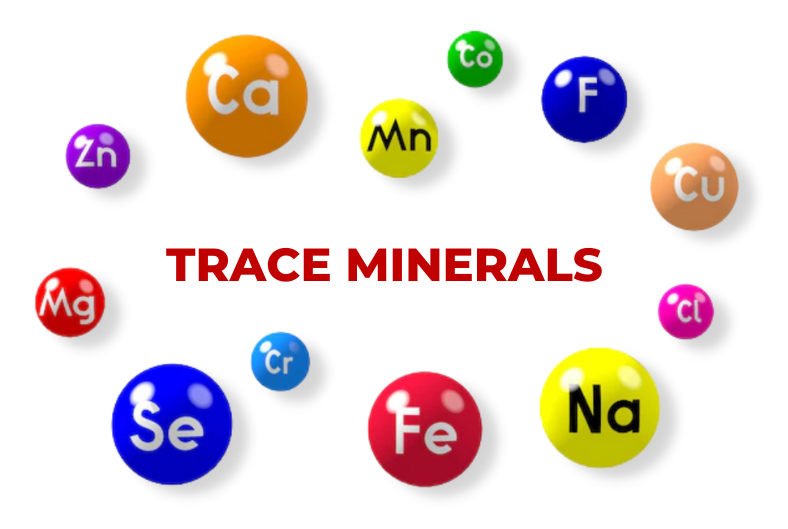- Empty cart.
- Continue Shopping
How the Body Processes Trace Minerals

Trace minerals are vital nutrients that the body requires in smaller quantities compared to macrominerals, but they play equally crucial roles in maintaining various bodily functions. Understanding how the body processes these trace minerals is essential for ensuring overall health and well-being.
1. Absorption in the Digestive System
– Stomach and Small Intestine
Trace minerals are primarily absorbed in the small intestine, with some absorption taking place in the stomach. Here, they pass through the mucosal cells lining the digestive tract.
– Mineral Transporters
Specialized proteins, known as transporters, facilitate the movement of trace minerals from the intestine into the bloodstream.
2. Circulation in the Bloodstream
– Binding to Carrier Proteins
Once absorbed, trace minerals bind to carrier proteins, which transport them through the bloodstream to various cells and tissues.
– Regulated Distribution
The body carefully regulates the distribution of trace minerals to ensure they reach the tissues and organs that need them most.
3. Utilization in Cellular Functions
– Incorporation into Enzymes and Proteins
Trace minerals serve as cofactors for numerous enzymes and proteins, facilitating various biochemical reactions within cells.
– Roles in Metabolism
Trace minerals like zinc, copper, and selenium play crucial roles in metabolic processes, including energy production and cellular respiration.
4. Storage in Tissues and Organs
– Mineral Reservoirs
Some trace minerals, particularly iron, are stored in specific tissues like the liver, spleen, and bone marrow, providing a reserve for times of increased demand.
– Maintaining Mineral Homeostasis
The body regulates the release of stored trace minerals to maintain optimal levels in the bloodstream.
5. Excretion and Elimination
– Kidney Filtration
Excess trace minerals that are not needed are filtered by the kidneys and excreted through urine.
– Biliary Excretion
Some trace minerals, like copper, undergo biliary excretion, where they are eliminated through the bile.
6. Specific Roles of Trace Minerals
– Iron
Essential for hemoglobin production, iron carries oxygen in the blood, supporting energy metabolism.
– Zinc
A cofactor for numerous enzymes, zinc plays a key role in immune function, wound healing, and DNA synthesis.
– Selenium
A potent antioxidant, selenium protects cells from damage, supports thyroid function, and aids in immune response.
– Copper
Necessary for the formation of connective tissues, copper also plays a role in iron metabolism and energy production.
Conclusion
Trace minerals are indispensable for a wide array of physiological processes within the body. Understanding how they are absorbed, distributed, utilized, and eliminated is crucial for ensuring that these essential nutrients contribute to optimal health and well-being. A balanced diet that includes a variety of nutrient-rich foods is key to maintaining adequate levels of trace minerals and supporting their vital functions.








